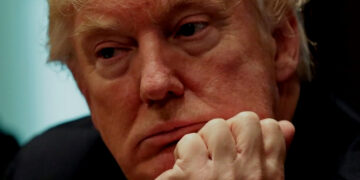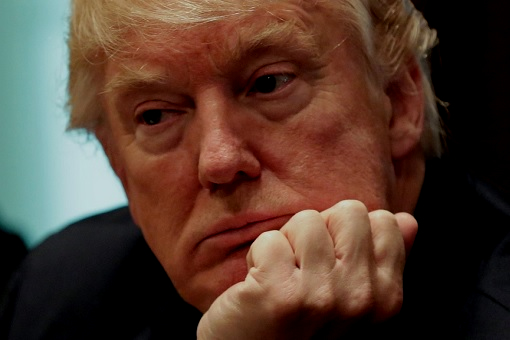By Emmanuel Nduka
After Colorado, the US State of Maine has disqualified former President Donald Trump from holding office and appearing on the state’s ballot.
Maine’s Secretary of State Shenna Bellows on Thursday made the ruling under section 3 of the 14th Amendment over Trump’s role in the January 6, 2021 assault on the US Capitol.
“The U.S. Constitution does not tolerate an assault on the foundations of our government, and Section 336 requires me to act in response,” Bellows, a Democrat, wrote in her decision.
“Given the compressed timeframe, the novel constitutional questions involved, the importance of this case, and impending ballot preparation deadlines, I will suspend the effect of my decision until the Superior Court rules on any appeal, or the time to appeal…has expired,” Bellows added.
The ruling however, notes that the decision can be appealed to the Superior Court within five days.
Bellows is the first election official to unilaterally make a decision on Trump’s eligibility.
The Maine decision comes a week after the Colorado Supreme Court ruled that Trump is disqualified from the ballot in that state — a decision that has been stayed while it is being appealed to the US Supreme Court.
Under Maine law, voters must first petition the secretary of state with challenges to a candidate’s qualifications for office, and then a public hearing is held where the challengers must make their case as to why the primary nomination should be invalidated.
“I am mindful that no Secretary of State has ever deprived a presidential candidate of ballot access based on Section Three of the Fourteenth Amendment. I am also mindful, however, that no presidential candidate has ever before engaged in insurrection,” Bellows stated.
We Will Appeal – Trump’s Campaign Team
Meanwhile, the Trump campaign said it will appeal.
“We will quickly file a legal objection in state court to prevent this atrocious decision in Maine from taking effect.
“We are witnessing, in real-time, the attempted theft of an election and the disenfranchisement of the American voter,” Trump campaign spokesman Steven Cheung said in a statement on Thursday night.
Earlier on Wednesday, Trump’s lawyers sent a letter that asked Bellows to disqualify herself and claimed she had “personal bias,” citing prior statements where she had “already concluded that President Trump engaged in insurrection.”
Bellows said she received three challenges to Trump’s primary nomination petition, two of which argued that the former president did not meet the qualifications for the presidency because he had engaged in insurrection and is therefore ineligible to hold public office under Section 3 of the 14th Amendment of the US Constitution.
The third challenge argued that Trump should be found ineligible under the 22nd Amendment, which establishes that “no person should be elected to the office of president more than twice.” Under this theory, the petitioner, Paul Gordon, said that Trump should be disqualified because he has long claimed to have won the 2020 election.
Bellows held a hearing on the bids to remove Trump’s name from the primary ballot on December 15. She was expected to rule on the validity of the challenges by December 22, but asked for additional information from the parties in light of the Colorado Supreme Court’s decision.
Bellows concluded that Trump had engaged in insurrection and that sufficient evidence had been provided to “demonstrate the falsity of Mr. Trump’s declaration that he meets the qualifications of the office of the presidency.”
Republican Sen. Susan Collins of Maine wrote Thursday night on social media, “Maine voters should decide who wins the election – not a Secretary of State chosen by the Legislature. The Secretary of State’s decision would deny thousands of Mainers the opportunity to vote for the candidate of their choice, and it should be overturned.”
More than a dozen other states are considering challenges seeking to bar Trump from the ballot, but courts in several states have rejected such challenges.
While Michigan Supreme Court ruled against such an effort on procedural grounds earlier this week, keeping Trump on the primary ballot there, the Minnesota Supreme Court ruled in November that it would not bar him from the primary ballot, but left the door open to considering a potential challenge should Trump be the Republican nominee in the polls.

































